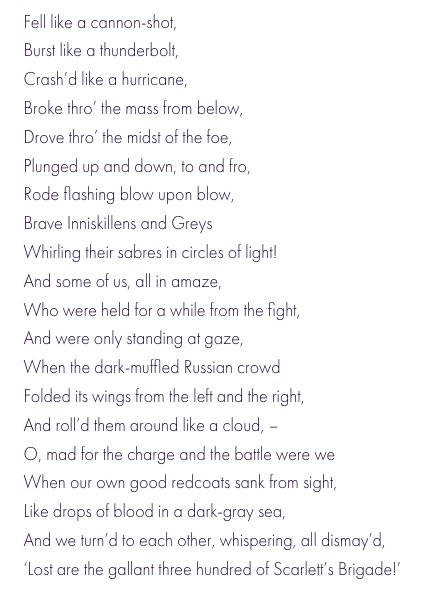
Trivia! During the Crimean War in 1853, Chef Alexis Soyer visited field kitchens to discover undercooked meat being served to soldiers. Soyer trained the British Army’s first regimental chefs and introduced the portable Soyer stove. The British army used it for the next 100 years 
https://twitter.com/RLCMuseum/status/1118847820268802048

Indian Railways would have not been so extant during the British time but for the Crimean War.
Bessemer's process to make steel quickly was accepted by Napolean III to make artillery shells for the war. And went on to become the dominant process for a 100 years, for steel making
Bessemer's process to make steel quickly was accepted by Napolean III to make artillery shells for the war. And went on to become the dominant process for a 100 years, for steel making

The Gulf War in 1991 brought the war to the drawing rooms on cable TV. But the Crimean War in 1854 brought instant news about the war to the politicians through the telegraph, and pictures to the newspapers by the newly invented cameras. 

For the first time in the Crimea War, the military forces used mass-produced rifles, sea mines and armoured coastal assault vessels with long-range cannons. The first industrial grade war.
Crimean War of course gave birth to the great poem by Alfred Tennyson, "The Charge of the Light Brigade".
Oh, by the way, there is a lesser known poem in the same war, during the siege of Sevastapol - "The Charge of the Heavy Brigade" by the same poet, with fantastic imagery.
Oh, by the way, there is a lesser known poem in the same war, during the siege of Sevastapol - "The Charge of the Heavy Brigade" by the same poet, with fantastic imagery.

And what's the Indian connection with the Crimean war? Oh well ...
In 1856, the Brits introduced a new rifle to their soldiers in India, called the Pattern 1853 Enfield. It used a new kind of paper wrapped cartridge, pre-greased to make it waterproof and to lubricate the bullet.
In 1856, the Brits introduced a new rifle to their soldiers in India, called the Pattern 1853 Enfield. It used a new kind of paper wrapped cartridge, pre-greased to make it waterproof and to lubricate the bullet.
The Calcutta firm of Gangadarh Banerji & Co landed the contract to supply the grease and rumours soon spread the grease was being mixed with pig and cow fat.
Yep, the rifle which helped the British in the Crimean War so well, lit the first war of Indian Independence.
Yep, the rifle which helped the British in the Crimean War so well, lit the first war of Indian Independence.
And there is an honourable connect with the Crimean War too ... 28 Indian soldiers won the Victoria Cross from 1914 to 1945. And guess the metal used to make this Maltese Cross?
The steel of the cannons seized by the British from the Russians in the Crimean War.
The steel of the cannons seized by the British from the Russians in the Crimean War.
Did I say Malta in the previous tweet. Rhymes with Yalta right? Oh yeah, Yalta is a place in Crimea too. The place where the three victors of the WW2 met to carve out the world among themselves. Roosevelt, Churchill and Stalin.
Yalta's neighbouring town or city, by the Black Sea is Sochi. The warmest city in Russia. Grandpa Stalin had a bourgeois dacha in Sochi as a summer retreat.
Paradox right? The 2014 Winter Olympics were held in one of the warmest Russian cities in summer.
Paradox right? The 2014 Winter Olympics were held in one of the warmest Russian cities in summer.
Oh Black Sea? That is another intriguing sea. Known for its anoxic water, i.e., hardly any oxygen dissolved in the water below the surface.
• • •
Missing some Tweet in this thread? You can try to
force a refresh







